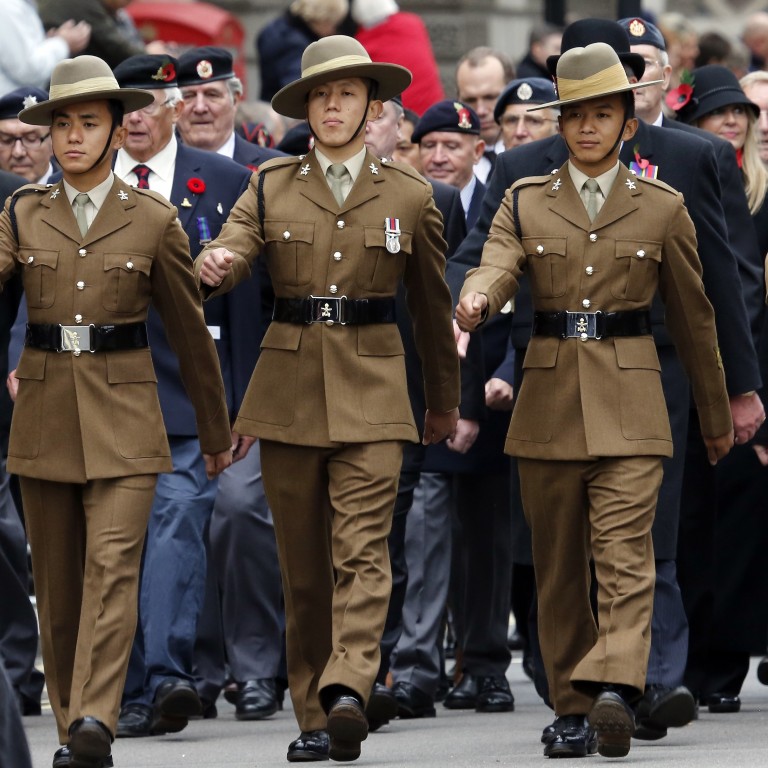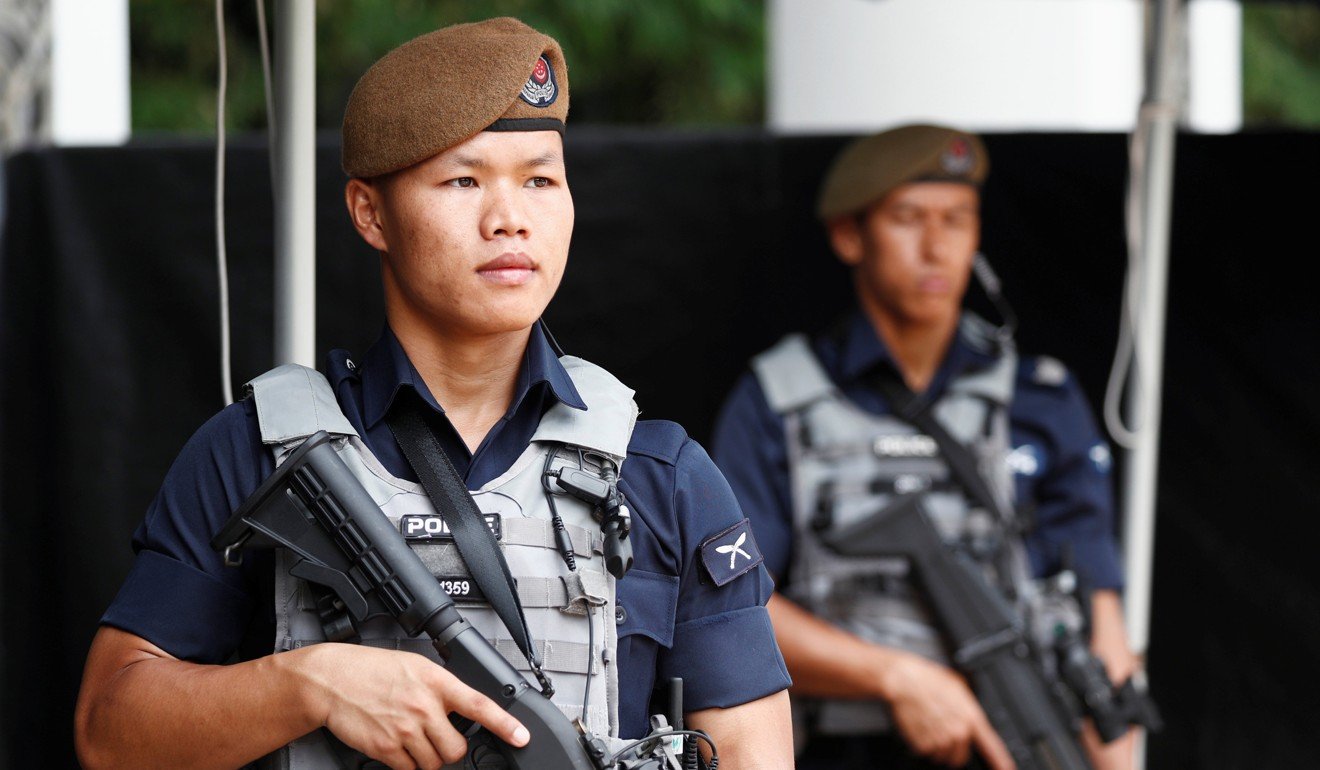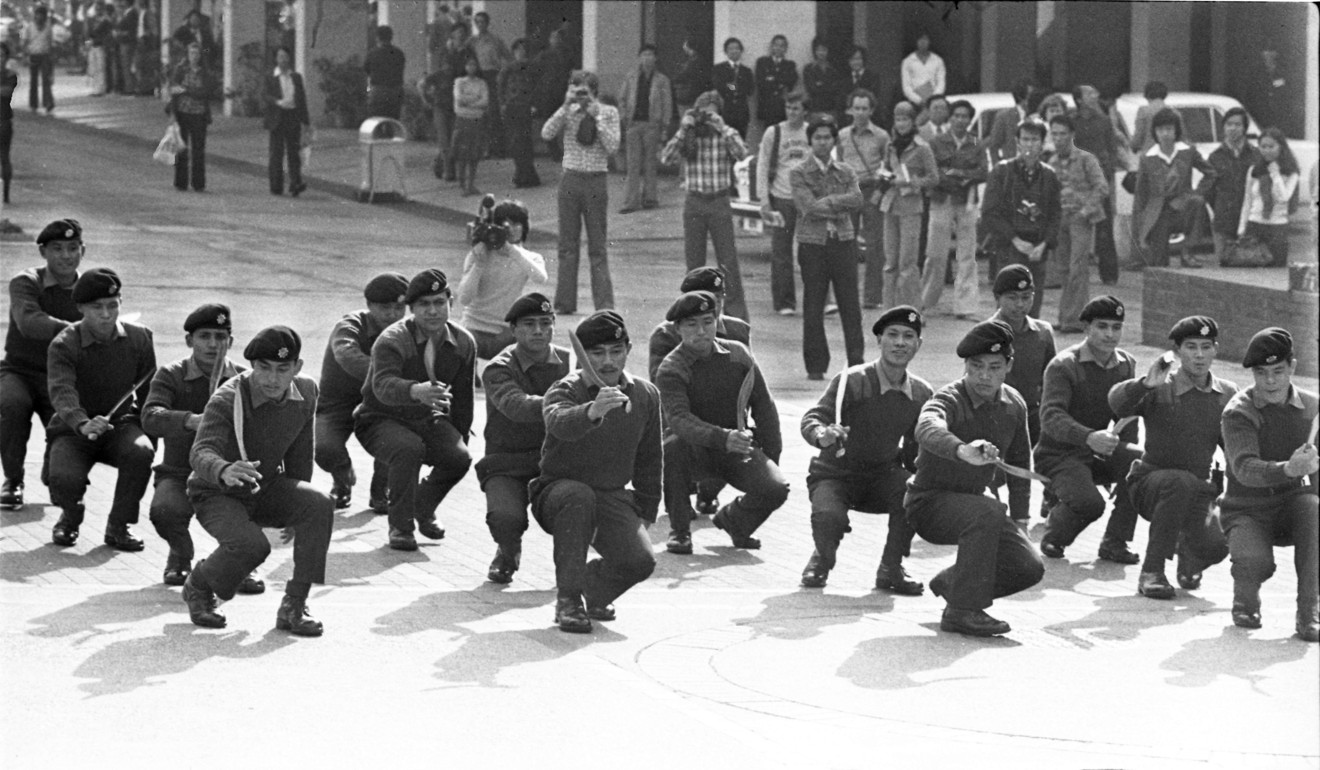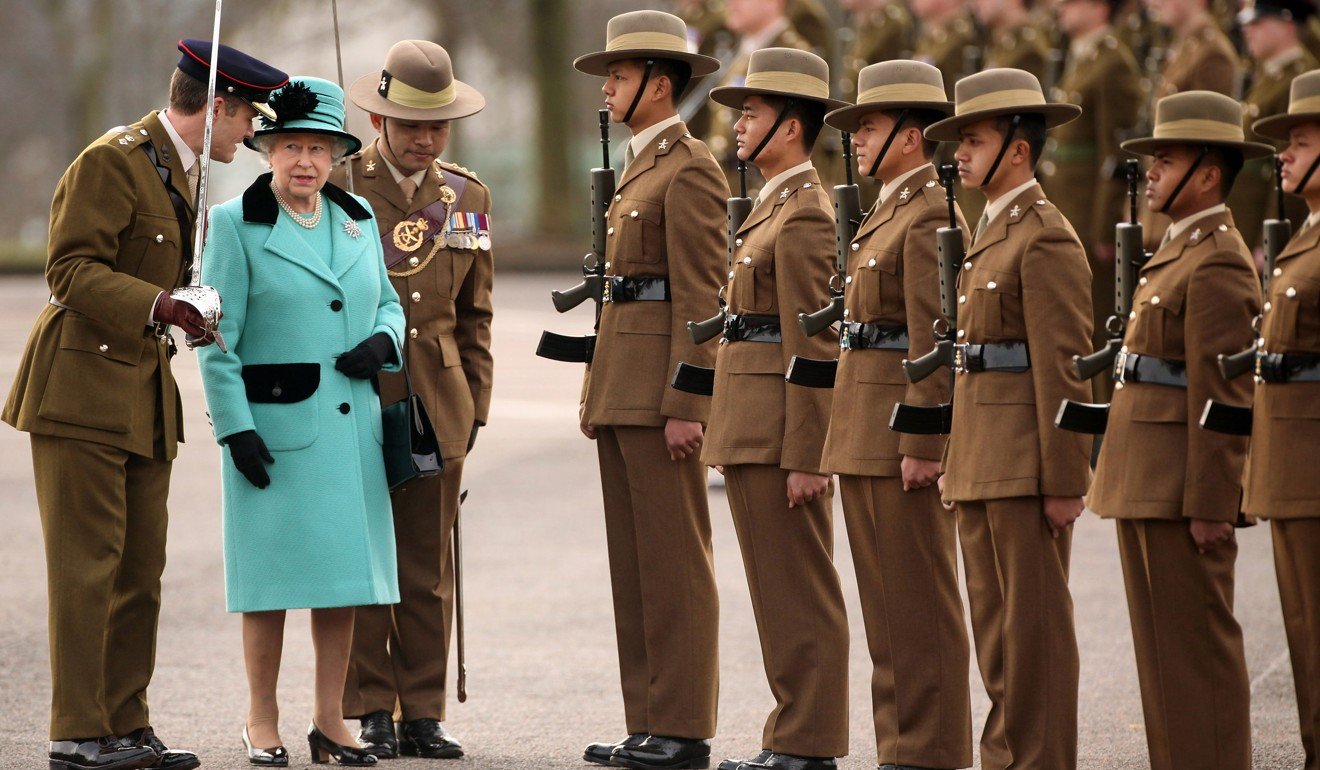
Gurkhas fought for Britain. Now, with hunger strike, veterans say they are fighting for dignity
- The former soldiers are waging one last battle for years of pension payments they insist are owed for their dedicated service to the crown in Hong Kong
- Britain says disparities in benefits between Gurkhas and other military veterans are justified, but the Nepalis say they will ‘never give up’
When Tikendra Dewan enlisted in the famed Gurkha brigade of the British army in the early 1970s, he was not thinking much about the future, let alone a comfortable retirement. Like many Nepalis who signed up to defend colonial Hong Kong, Dewan was drawn by the promise of adventure and the chance to see the world. But after devoting more than three decades of his life in service of queen and country, the 66-year-old veteran feels betrayed.
After Hong Kong was returned to Chinese rule in 1997, its Gurkha brigade moved to Britain. Dewan left the service in 2002. He gets a monthly pension of about £900 (US$1,100) – half the amount received by native British soldiers who retired around the same time.
“We didn’t know anything about the terms and conditions of pay,” said Dewan, who now lives in Farnborough, about 65km southwest of London. “When you are young, you don’t bother about these things.”

Acclaimed for their military prowess, Gurkha veterans like Dewan are now waging one last battle for years of pension payments they insist are owed for their dedicated service. After years of failed negotiations – which have been prolonged by the uncertainty surrounding Brexit – campaigners are threatening to go on a hunger strike unless the British government addresses their grievances by October 24.
They are demanding Nepal and Britain enter a dialogue on the issue and announce the dates that discussions will take place. If not, they warn, Gurkhas will begin a “relay hunger strike” in which three of them would refuse food for a day over 13 days until their deadline of November 7. Gyanraj Rai, head of the Gurkha Satyagraha Struggle Committee, is even threatening to strike until death after that date.
British citizen of Gurkha descent decries ‘state-sponsored discrimination’
Under Ministry of Defence (MOD) rules, compensation for each year of service by a Gurkha before Hong Kong’s handover is as low as one-third of the amount awarded for service after 1997. Although Britain has increased pensions for Gurkhas over the years – most recently committing £15 million to increase payments by 10 to 34 per cent – it has refused to grant full parity.
The MOD argues the discrepancy is justified because of lower living costs in Nepal, although thousands of Gurkhas now live in Britain. In 2009, the British government agreed to give those who had retired before 1997 with at least four years of service the same resettlement rights as those who retired after the handover.

“When we think of our hard work and contributions, we feel betrayed,” said Rai, who retired in 1995 after 19 years of service and today receives a monthly pension of about £400.
Thriving Nepalese culture of Yau Ma Tei down to Gurkha soldiers
Tim Gurung, the Hong Kong-based author of a forthcoming book on the history of the Gurkhas, said the British government had never shown its appreciation for their contribution.
“The British government has always been unfair and discriminative,” he said, estimating that 16,000 Gurkha veterans live in Britain. “The only reason they have been enrolling and hiring the Gurkhas is that they have been cheap. They are excellent soldiers, they can do a better job than anyone else and they are cheaper. Although they have always [been] promised many, many things, at the end of the day it’s just words – no substance.”
In Hong Kong and other colonies, Gurkhas were treated as subordinate to their British peers, often enduring miserable pay and conditions.

“Gurkha officers could not call British officers by their first name. It had to be sahib,” said Dewan, referring to an honorific commonly used in British-ruled India. “In Hong Kong, [the British command] got away with murder. We were totally treated as a colonial regiment.”
For many, though, the hardest part was being separated from family for years. Unlike British soldiers, Gurkhas were not allowed to have family with them during their service, except for short periods. For some, it resulted in family breakdowns. Rai, for example, is estranged from his three children after his first marriage ended in divorce.
“They feel like I did not care for them,” said Rai, who lives in Reading and is between jobs after working as a security contractor in Iraq and a bus driver in Britain. “We don’t have any connection now. It was so difficult. But now I have realised, life is [like] this.”
Gurkhas to guards: Nepalis live dangerously abroad to escape grinding poverty back home
While Gurkhas such as Rai and Dewan can still work to make a living, many older veterans cannot speak English and struggle with life in Britain. In many cases, they are holding out for the government to change its stance before returning to Nepal to live out their final years.
“They have got no one to look after them,” Rai said. “We don’t know how long they will survive.”
A spokeswoman for the MOD said a 2016 ruling by the European Court of Human Rights had found the difference in treatment to be “objectively and reasonably justified” as the transfer of Hong Kong marked the point at which Gurkhas “started forming ties” with Britain.
“Gurkhas have made a huge contribution to the armed forces for more than 200 years and we are proud they will continue to play an important role,” she said. “Gurkhas have received the same pension rates as other UK service personnel for service since 1997.”
Despite establishing a committee made up of MOD officials and Gurkha representatives to address the issue by 2017, the government has given no indication that it intends to meet the demands of campaigners.
“We just want dignity,” Dewan said. “Money alone is not the main factor, though it means a lot. But the main thing is dignity as well so we can rest in peace and at least say we were treated as equals.
“That’s the Gurkha spirit – we will never give up.” ■

